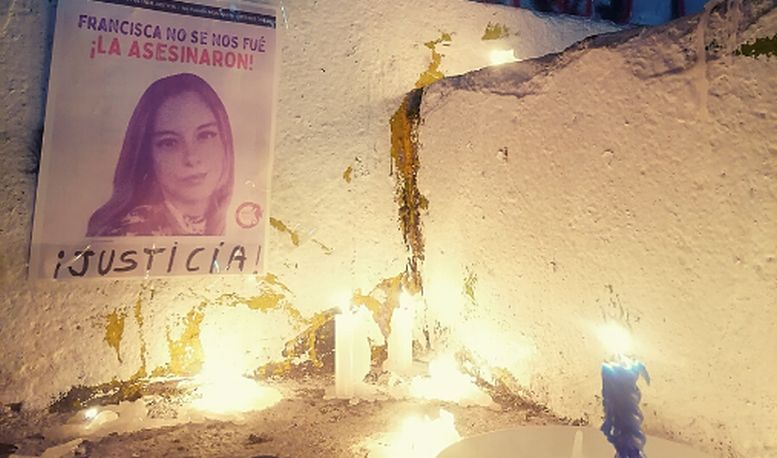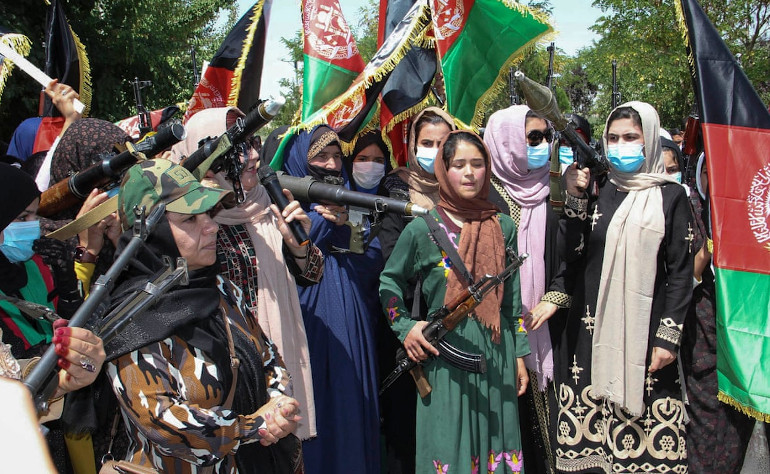Vilma Álvarez and Fernando Lacerda are members of ISA in Chile.
Understanding the result of the September 4 plebiscite is crucial for the entire working class in Chile and for evaluating the perspectives for struggle.
On September 4, more than 15 million Chileans voted in the plebiscite on the approval of a new Constitution. However, more than 61% of Chileans voted for the “Rechazo‘’ (to reject the new constitution). This means maintaining the current text, created during the Pinochet dictatorship and which represents the beginning of neoliberalism in Chile. The result surprised much of the left that were betting on the victory of the “Apruebo” (approval of the new constitution), since Pinochet’s Constitution had been harshly repudiated during the massive rebellions that began on October 18, 2019 (18O). The victory of the Rechazo represents a victory of the Chilean Right and a defeat of the Boric government’s policies and political coalition. These forces prioritized agreements with the right wing during the Constituent Convention (the body and process that debated and drafted the proposal for a new constitution) as opposed to a campaign on the streets to win a victory for the Apruebo.
The defeat of the Apruebo campaign opens a new moment in the political conflicts that began in 2019 in Chile. For the right, the victory of the Rechazo means an opportunity to intensify attacks against the working class. For the Boric government, the defeat has been interpreted as a sign that further negotiations with the right-wing sectors and the ex-Concertación (the center “left” and pro-capitalist coalition that oversaw the transition to democracy) are necessary. For the socialist and revolutionary left, the result of the plebiscite signified an expression of the political limits of what happened after the social explosion of 2019.
Indeed, understanding the result of the September 4 plebiscite is crucial for the entire working class in Chile and for evaluating the perspectives for struggle. Was it a defeat for the left? Does the result indicate a shift to the right of working-class consciousness? What are the perspectives after the disastrous result of the Constitutional Convention? Here, we will present ISA’s position and perspectives for the working class and youth in Chile.
Why did the Rechazo win?
The victory of the Rechazo does not mean that Chilean people defend the maintenance of the Pinochet constitution. As Marxists, we know that plebiscites and elections express, in a contradictory way, the consciousness of the masses. Contrary to what some claim, the result does not indicate a turn to the right in mass consciousness. Rather it expresses a rejection of the limits of the policy of class conciliation. This was carried out by the Boric government and its political coalition formed by the alliance between parties of Apruebo Dignidad (which includes Boric’s Frente Amplio and the Communist Party) and Socialismo Democrático (which includes a significant part of the parties that were the base of support of the governments of the ex-Concertación of Michele Bachelet, including the Socialist Party and the Liberal Party).
In the same sense, many exclusively blame the role of fake news produced by far-right organizations. It is true that the lies and gross distortions about the changes that would be produced after the victory of the Apruebo, it is important to note that the strength of fake news grows only in a context of crisis of the mass organizations of the working class. The only way to combat the harmful effect of fake news is to create media (press and social networks) of the working class itself and its organizations. Without organized, mass parties or unions and their own means of struggle for hegemony, there remains a space that is occupied by the mass media of the bourgeoisie and fake news.
For us, the reasons for the victory of the Rechazo campaign are related to the absence of these mass organizations of the left in Chile and the limits of the text of the New Constitution itself. The proposed Constitution approved by the majority of the Constitutional Convention was profoundly limited and did not point to real and meaningful changes in the current political and economic system in Chile. Its content did not represent the demands of the revolutionary masses of 2019 and, for that reason, they kept their distance from the official campaign for the Apruebo.
Initially the Chilean masses took to the streets on October 18, 2019, to fight the neoliberal measures of the Sebastián Piñera goverment and, in a few weeks, the struggles deepened politically: a successful general strike was held on November 12, in which the working class demanded the end of neoliberalism, real changes in the economy and a sovereign Constituent Assembly.
Unfortunately, the so-called “Peace Accords” of November 15, 2019 (15N), signed and imposed from the top down by all the parties of the order (and this includes Frente Amplio, Boric’s party), tried to institutionalize and control the popular struggle. The ruling class feared a new general strike and the development of a real revolutionary situation. After the 15N agreements, we saw the victory of independent left groupings in the election of delegates to the Constituent Convention in May 2021 and the victory of Gabriel Boric against a representative of the extreme-right in the general elections held at the end of 2021. However, both the constituent delegates and the new Chilean government adopted a policy of class conciliation, aimed at maintaining “political stability”.
Since then, the living conditions of the working class have worsened considerably: in addition to a pandemic that punished the poorest sections of society, there has been massive inflation and rising food prices. The gradual deterioration of working-class living conditions means that it will only support policies that produce real changes and this was not offered by the new constitutional text produced by the Constitutional Convention.
The Constitutional Convention approved a limited text that offered fine words on social welfare, women’s rights, indigenous peoples’ rights and others without defining concrete measures to make those rights a reality. The text did not present any proposal to make the necessary economic changes to reduce the alarming social inequality in Chile. Although the Constitutional Convention text made progress in proposing the legalization of abortion, it did not present a single concrete proposal for the building of a free public healthcare system. Similarly, the text did not propose the nationalization of copper and other natural resources in Chile, and in fact guaranteed the maintenance of private sector participation in the exploitation of Chile’s natural resources.
The text approved by the Constitutional Convention did not address the demands that arose in the struggles that began on October 18. Thus, it is not correct to say that the working class opted for Pinochet’s Constitution. Rather, we saw the rejection of a new Constitution as it was limited to making purely textual changes. It is true, the victory of the Rechazo is a victory of the Right, but this was only possible because, since the social explosion of 2019, the Center-Left has only acted to save the capitalist system and not to offer a real alternative. Add to this the absence of a left and independent alternative that could channel the discontent of the working class towards a less disastrous outcome than the victory of the Rechazo.
After the Rechazo: Advances of the right wing, inside and outside the government
The victory of Rechazo was first and foremost a defeat for the coalition that today governs the country. For the right wing that supported the government of Sebastián Piñera or even for the extreme-right, the victory of Rechazo means an opportunity to rescue old policies and program that represent the political and economic interests of imperialism and big business. Boric has been an accomplice to this: since his defeat in the plebiscite he has moderated his politics even more, which in practice means making greater concessions to capital.
In this context, the attempt to approve a free trade agreement between 11 Asia-Pacific countries (Australia, Brunei, Canada, Chile, Japan, Malaysia, Mexico, New Zealand, Peru, Singapore and Vietnam), known as TPP-11, was resumed. The treaty proposes not only the opening of markets and the implementation of trade, environmental or technological agreements between the countries involved but also numerous attacks, including the implementation of labour counter-reforms and the deepening of the process of exploitation of Chile’s natural resources by international finance capital.
If Chile approves the TPP-11, the taxation of foreign products or the control of transnational corporations will practically disappear. This means opening greater opportunities for international agribusiness companies to freely appropriate Chilean natural resources. Issues such as the use of seeds or intellectual property will no longer be defined by the Chilean State, but by international tribunals dominated by large corporations and the main signatory powers of the treaty.
This is not the first time that capital has attempted to approve the TPP-11. The first attempt, made in 2019 during Piñera’s term, was defeated by popular resistance and opposition parties. Today, after the defeat of Apruebo, the right revived the proposal to approve the free trade agreement and it has been defended by broad sectors of the coalition that sustains Boric in power. In a recent statement by Boric at recent UN General Assembly, he stated that the TPP-11 was not part of his program and that there are specific differences. However, he did not totally reject it and affirmed that he would respect the decisions of the Federal House or the Senate. This is a problematic position, since Article 32 of the Chilean Constitution guarantees the right of the president to sign or veto international treaties. Thus, Boric could veto the advancement of the bill and, thus, assert the interests of the working class.
The process of capitulation of Boric and the Frente Amplio to the maintenance of the capitalist order is expressed in the maintenance of state repression. From the first day of government, the carabineros (Chilean riot police) and the armed forces have acted freely in their violent repression against protesters. Boric not only failed to release Piñera’s political prisoners, but maintained the repressive policy of previous governments. The result was the murder of the journalist Francisca Sandoval by militia acting with the consent of the carabineros and the increasing militarization of conflicts in the Wallmapu (traditional territory of the Mapuche people) region. Recently, the Boric government contributed to the arrest of Hector Llaitul, representative of the Mapuche people. ISA Chile defends the release of all political prisoners of Piñera and Boric, in addition to the punishment of all those involved in cases of violation of the right to free expression of the working class and youth.
Towards a new October 18 and beyond its political limits: Build a Socialist Alternative!
The situation in Chile continues to be explosive. Contrary to what the representatives of the government and the bosses claim, there is still a deep awareness of the social unrest created by the inequality prevailing in Chile. The working class has been facing an accelerated process of worsening living conditions. All responsibility for the defeats suffered recently does not fall on the consciousness of the working class, but on the policy of class conciliation of Gabriel Boric and the coalition formed by Apruebo Dignidad and Socialismo Democrático.
The worsening of social conditions and Boric’s successive capitulations to the interests of financial capital may be answered in the future with a new wave of demonstrations and strikes. A few days after the victory of Rechazo, the streets of Santiago were occupied by students demonstrating for their rights, in addition to raising fundamental slogans such as: the release of political prisoners, against the TPP-11 and for a sovereign constituent assembly.
On September 22, as part of a day of homage to the union leaders assassinated by the Pinochet dictatorship, a national day of strike of the ports in Chile was held. In addition, there is already a call for massive mobilizations recalling the beginning of the social explosion on October 18, 2019.
These are signs of what’s to come. Only the revival of struggle will be able to reverse the growing process of Boric’s capitulation to capital and prevent the growth of the extreme-right in the next period. However, this requires that the most advanced sectors of the Chilean working class and youth be armed with a program capable of burying once and for all neoliberalism and what remains of the Pinochet dictatorship in Chile.
The struggles against the TPP-11, the resistance against privatization of education and the fightback against the rise in food prices must be linked with the building of independent political organizations, in our workplaces and neighborhoods, that deepen the mobilization of the Chilean masses and aim to break with neoliberalism and the capitalist order. The direct actions of 2019 that still occupy our memory will only be able to advance and develop if we manage to create a new political and socialist organization of the workers and youth. It is about building a Socialist Alternative in Chile.




